What can England, Italy, and Spain learn from the Bundesliga's return?
With La Liga, the Premier League, and Serie A all set to return over the next 10 days, each will have been keeping a close eye on the Bundesliga to glean information on the ins and outs of resuming the campaign. Below, we outline some of the key takeaways those three leagues will have learned from watching the action in Germany.
Does home-field advantage still matter?
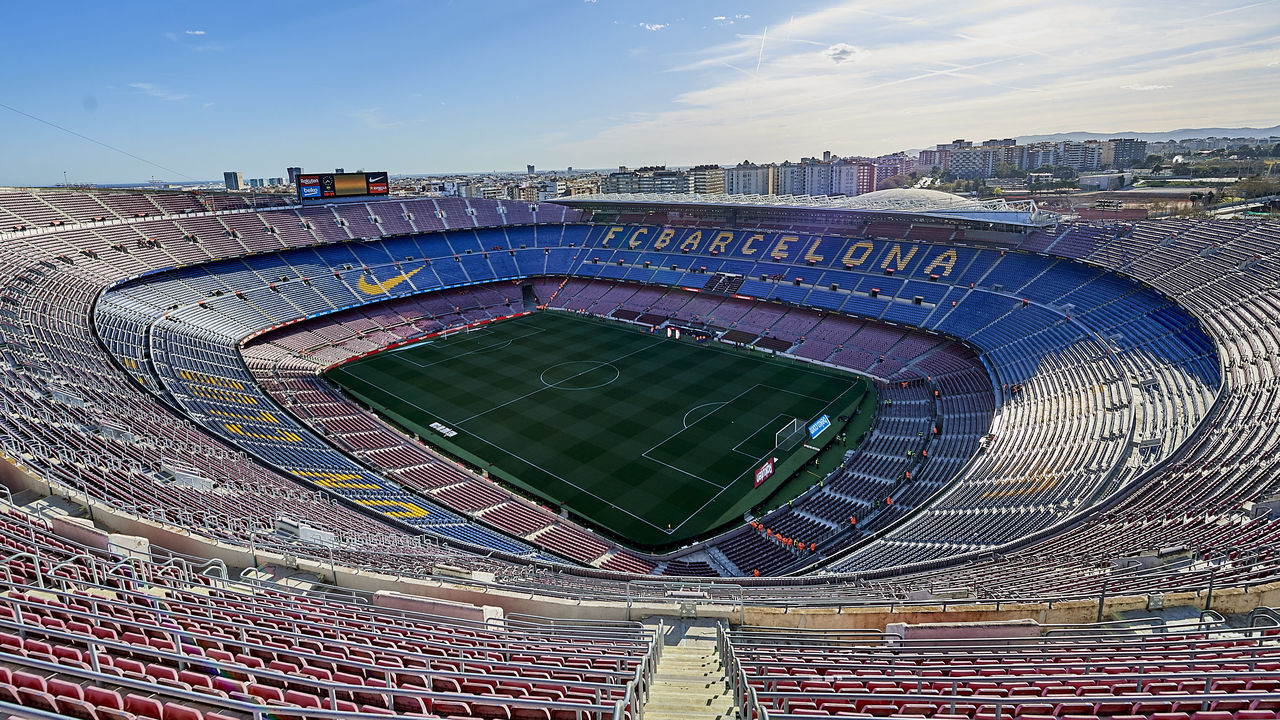
The most significant on-pitch takeaway from the Bundesliga’s return has been the startling lack of success home sides have enjoyed. It turns out that home-field advantage is more than just an overused cliche.
A total of 224 games had been played this season when Germany’s top flight was shut down. Home teams won 97 of those – away sides picked up 78 wins, and there were 49 draws – which works out to a 43.3% winning percentage. That figure has been slashed dramatically since the restart, as hosts have picked up a measly 10 victories from 46 contests, good enough for a winning rate of just over 21%.
It makes you wonder why Premier League clubs, especially those mired in the relegation scrap, lobbied so hard against completing the season using neutral venues, citing a lack of fairness if they were robbed of their “home” matches.
It’s possible this is just a brief trend that will normalize over time – the sample size isn’t that large, in fairness – but perhaps removing the roar of a live partisan crowd really does render home games meaningless.
It pays to take risks
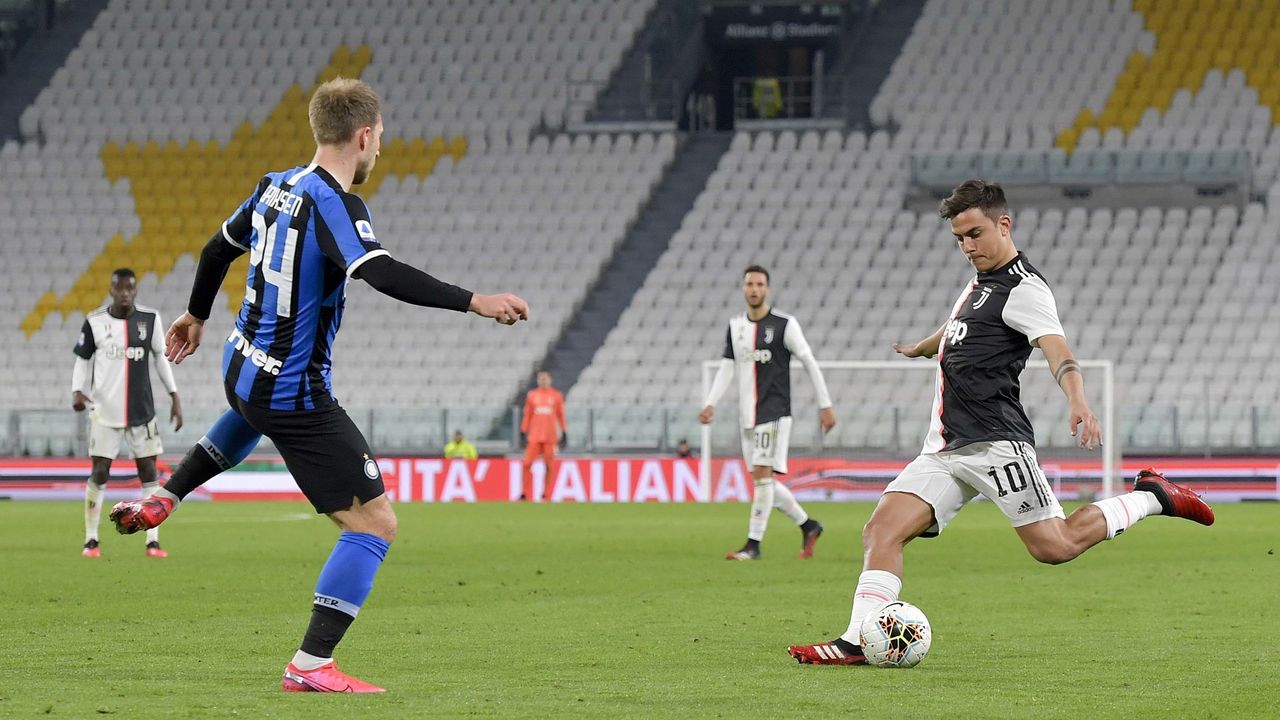
Now more than ever, being the aggressor on the pitch is of the utmost importance. There are opportunities – and crucial points – to be had if teams are willing to take risks; it’s not the time to be conservative.
The success that various teams have found using high-pressing systems – including, most prominently, Liverpool under Jurgen Klopp and Manchester City under Pep Guardiola – has turned that aggressive approach into a widespread phenomenon in world football. But it figures to be particularly rewarding right now, while players and teams try to shake off the rust built up during the lengthy layoff.
Putting defenders under pressure when they have the ball, for example, could result in more scoring chances as players potentially struggle to get up to speed. Training, for all its benefits, can’t replicate the intensity of a match, after all.
As we’ve seen with the likes of Matheus Cunha and Pierre Kunde – each of whom scored spectacular solo goals in the opening weeks of the Bundesliga return – taking the initiative and forcing the opposition onto the back foot can yield spectacular results.
Mind your celebrations
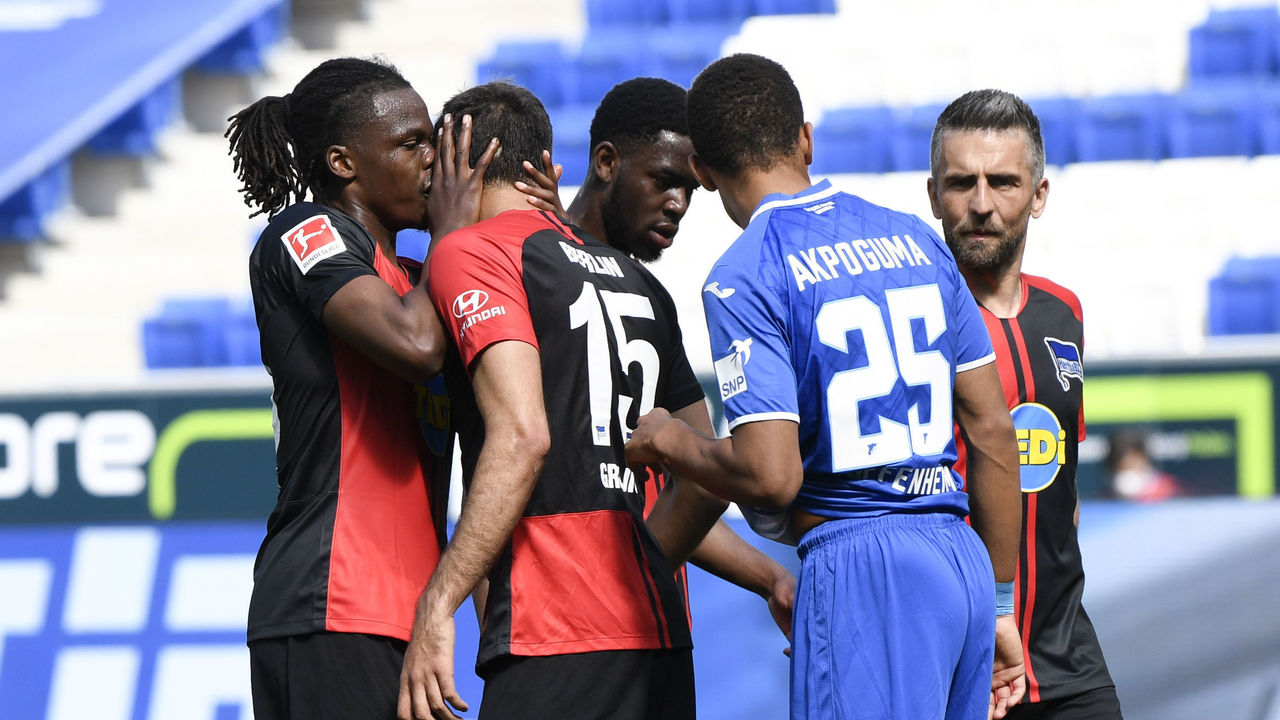
Though certain safety protocols have been eased – Bundesliga substitutes no longer have to wear face masks on the bench, for example – the most openly criticized moment of the restart in Germany was related to, of all things, a goal celebration.
The league has, by all accounts, executed its resumption superbly, but there were swift reminders of safety measures when Hertha Berlin defender Dedryck Boyata kissed teammate Marko Grujic on the cheek during his team’s first match back.
Though he maintains he abided by the protocol – despite photo evidence to the contrary – Boyata was reminded of the league’s call for players to socially distance as much as possible while celebrating with teammates; elbow bumps have now become the most popular show of jubilance.
When in doubt, follow Erling Haaland’s awkward celebratory lead.
Need this Erling Håland celebration added on FIFA 20 ? pic.twitter.com/486I0AjUzB
— ? (@UtdAidan) May 16, 2020
On the one hand, it seems counterintuitive to ask players who are in close, sweaty contact with opponents to avoid hugging their teammates during a game in which they’ll have their arms wrapped around an adversary on multiple occasions. Think corner kicks, for example. But, any additional step to potentially make the staging of these matches safer is critical, especially in England, Italy, and Spain, which were each hit harder by the COVID-19 outbreak than Germany.
Be liberal with substitutions
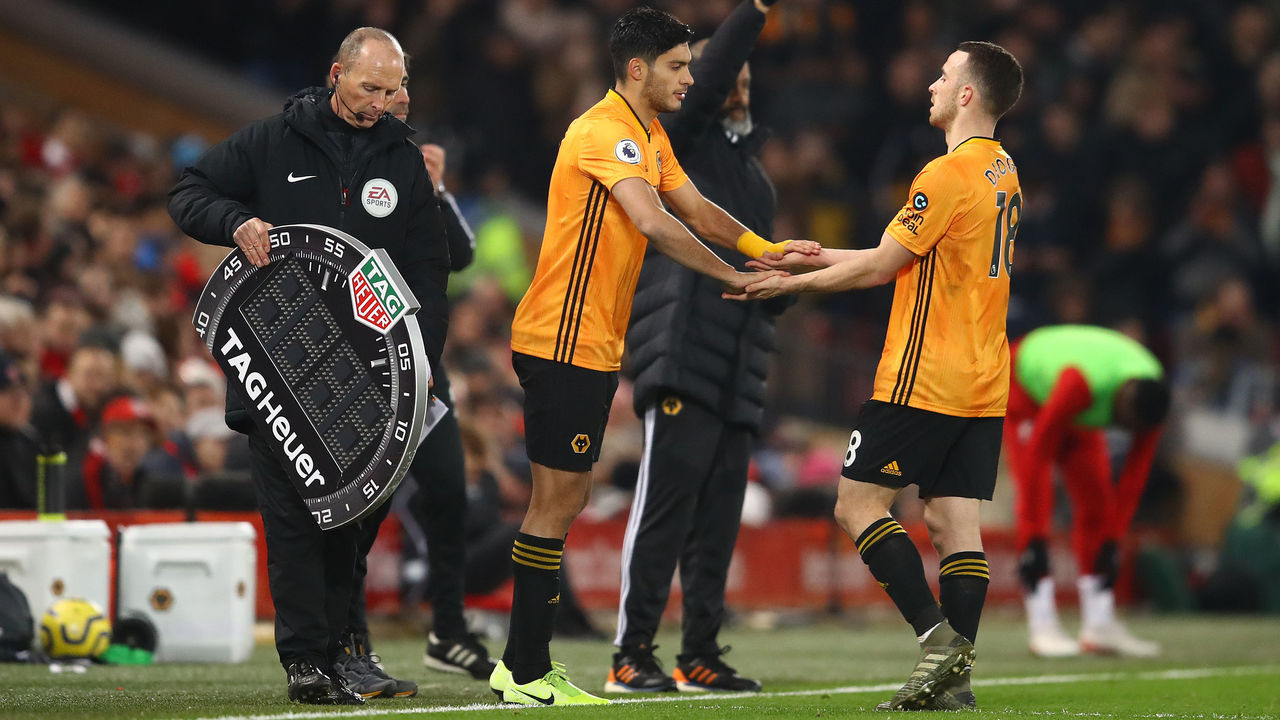
In an effort to complete the season as quickly as possible, mainly to avoid delaying the start of next season too drastically, each of Europe’s top remaining leagues are about to embark on wildly congested schedules.
As such, it behooves managers to take full advantage of the International Football Association Board’s decision to allow two additional substitutions, for a total of five, per contest. Combined with a three-month layoff, teams playing multiple matches every week will inevitably result in a spate of muscle injuries if managers aren’t careful to massage their rosters and rotate as much as possible.
Having additional substitutions should, in theory, benefit the proverbial heavyweights with deeper talent pools while simultaneously hindering those who rely on a steady core of players.
In Italy, title challengers Lazio are trying to topple Juventus despite only having 12 outfield players who have started 10 or more matches this season. An untimely injury, now more likely than ever, could derail their championship charge.
Similarly, in England, Champions League hopefuls Wolverhampton Wanderers have used only 20 players all season, and two of them – Jesus Vallejo and Patrick Cutrone – are now gone.
To say nothing of how the additional substitutions can impact in-game tactical choices and changes, being liberal with those moves is vital strictly from a player preservation standpoint.
Pump in the crowd noise
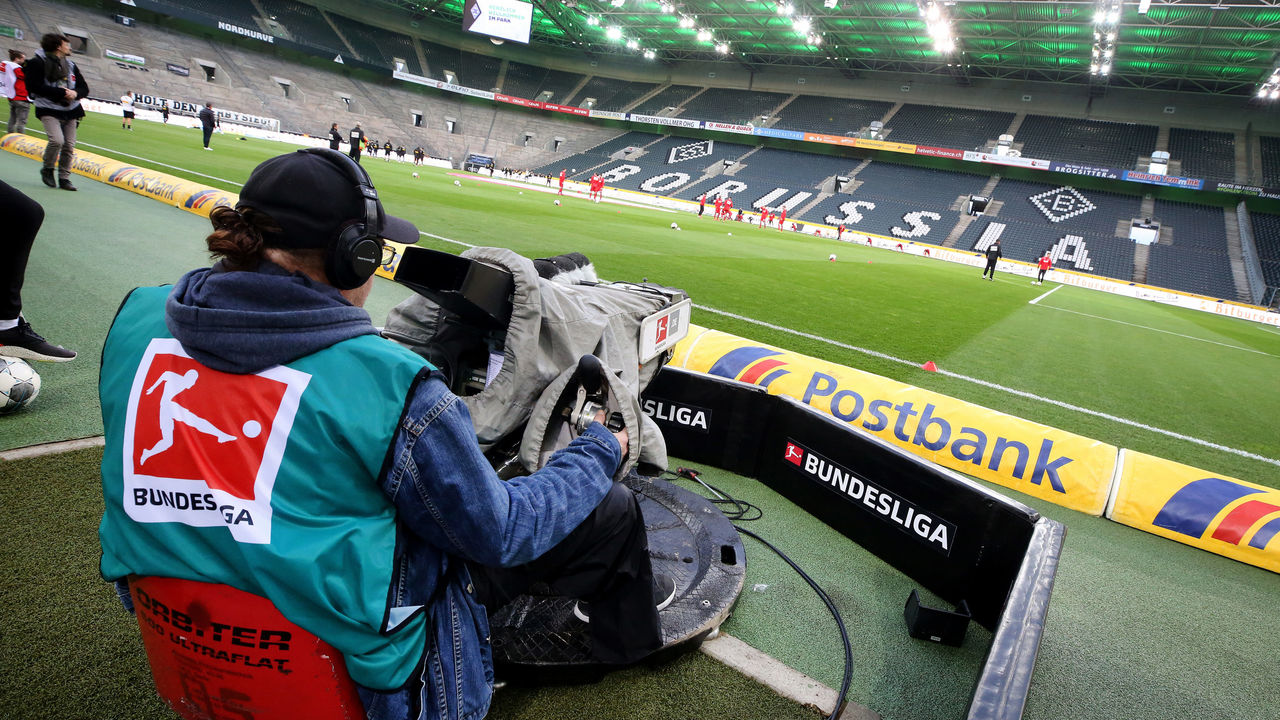
This is more a note for broadcasters than anything else, but the eeriness of empty stadiums has been offset, at least somewhat, by the fake crowd noise that some have been using to liven the viewing experience.
Not all are in favor, of course, but it does add some semblance of normalcy during a time that’s anything but.
Working together with EA Sports, British television provider Sky Sports says it “has created a range of bespoke and team-specific crowd noises and chants to bring the vibrant atmosphere of the Premier League to the restart.”
Even when there’s nobody at Anfield, you’ll never walk alone, it seems.
La Liga is getting in on the virtual act, too, ensuring that players communicating on the field and managers screaming at the top of their lungs won’t be the only things you hear during the next month-plus of action.


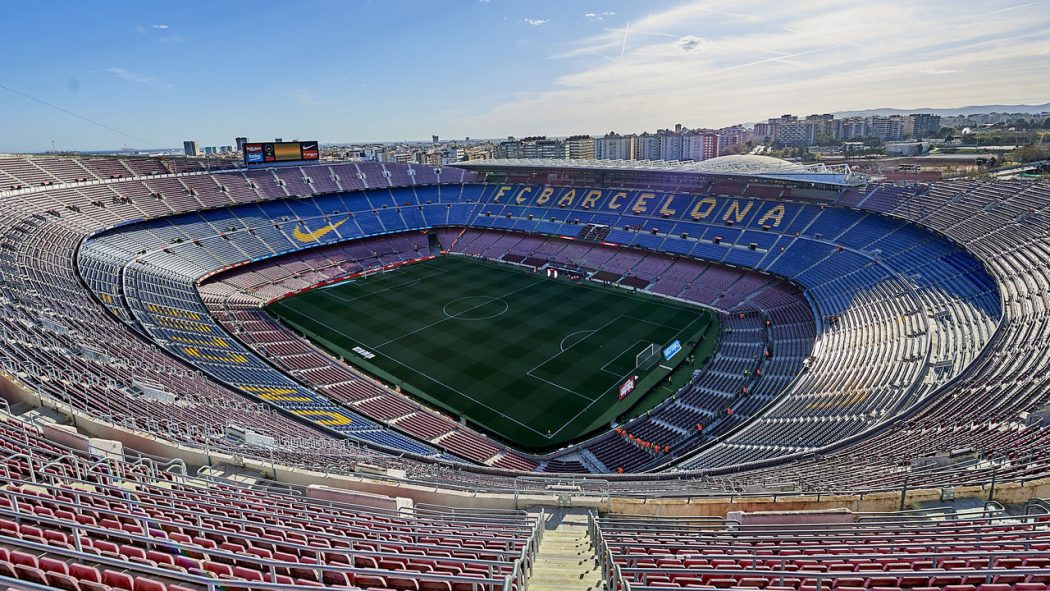

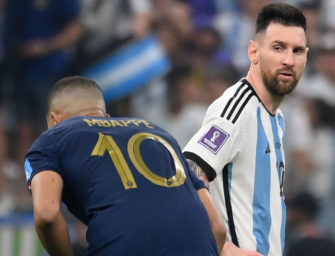

Latest Comments